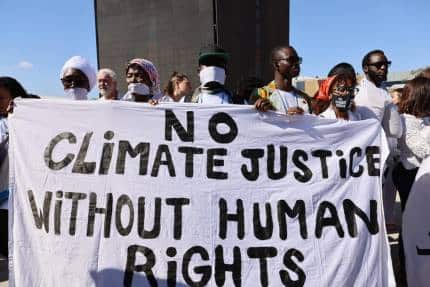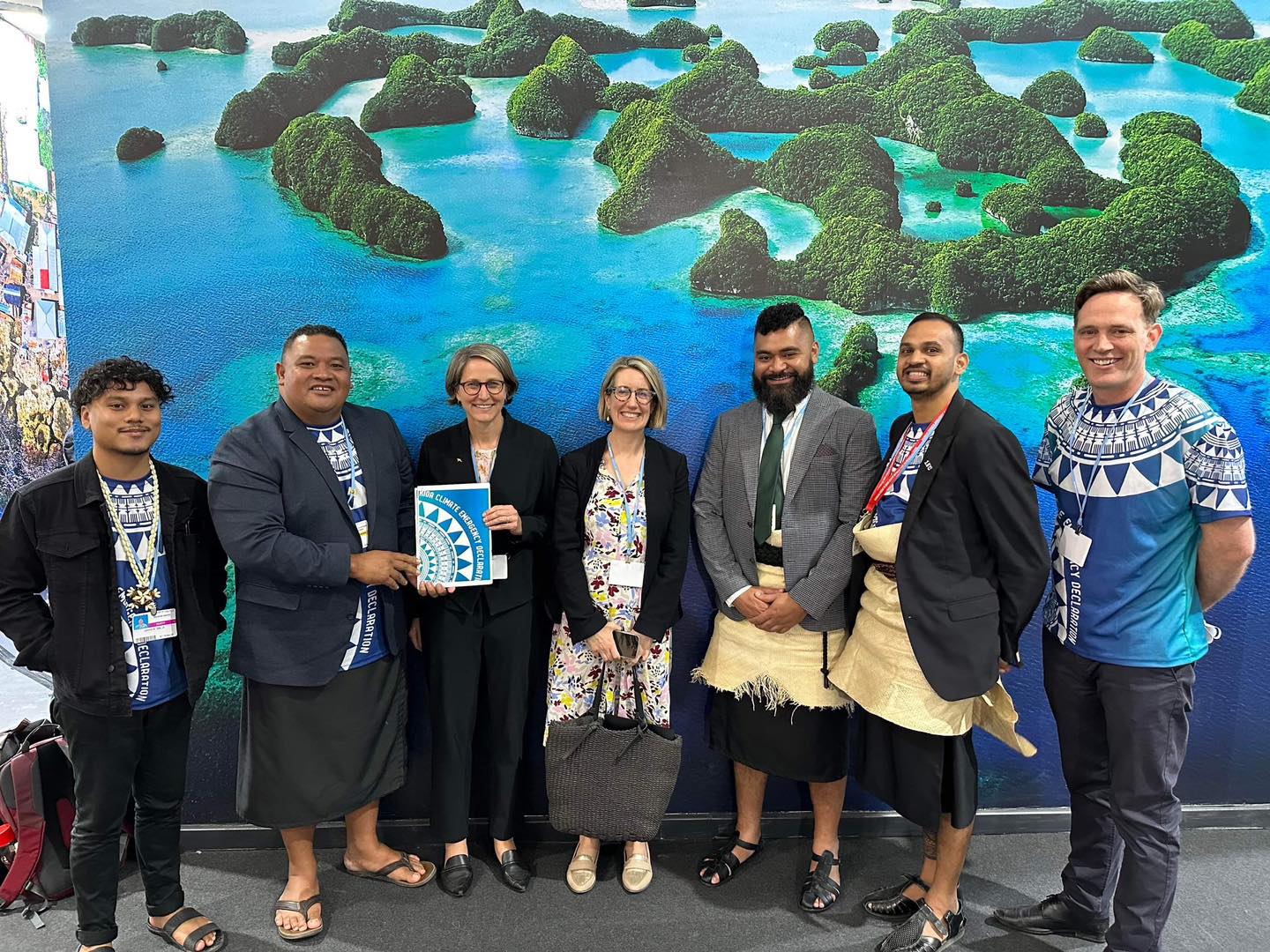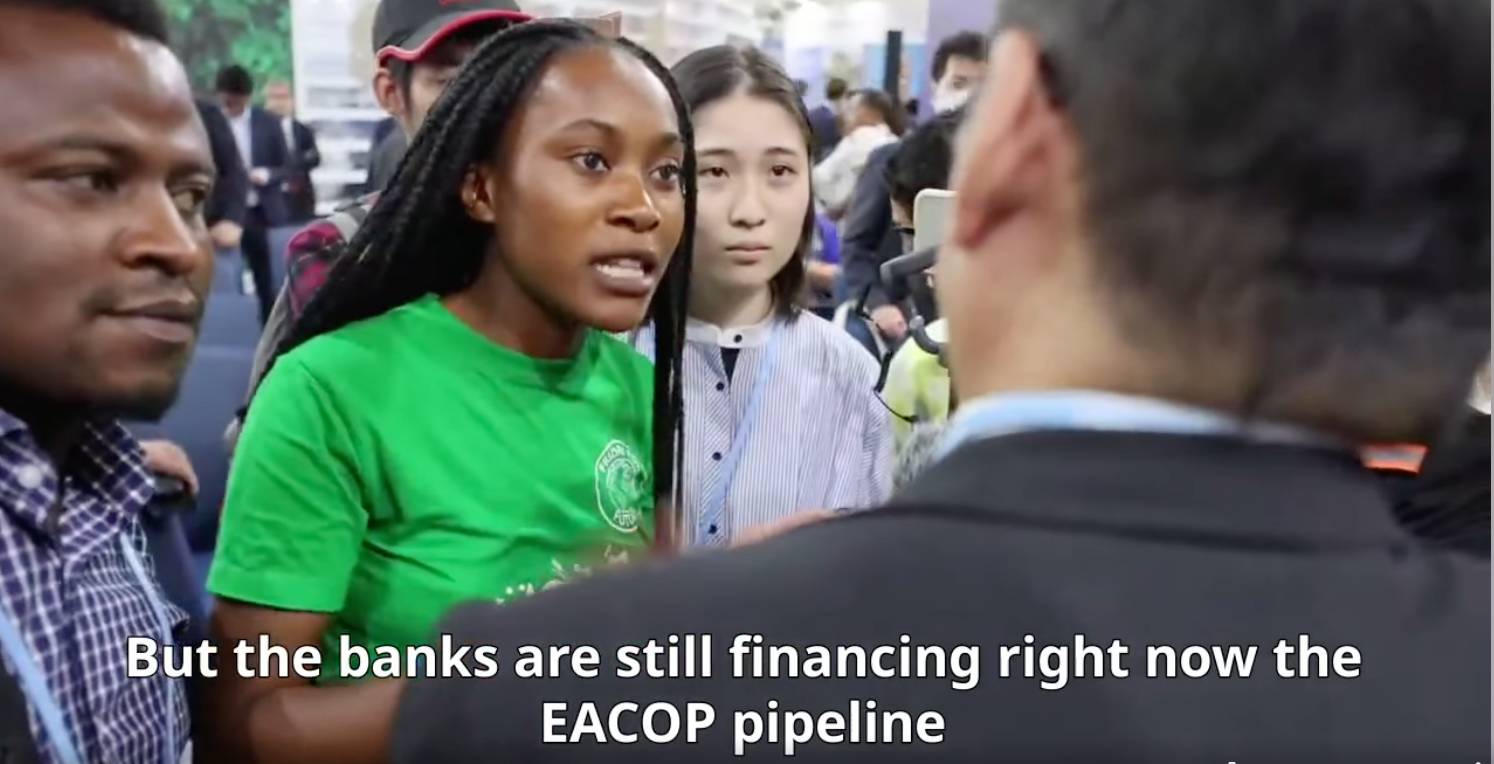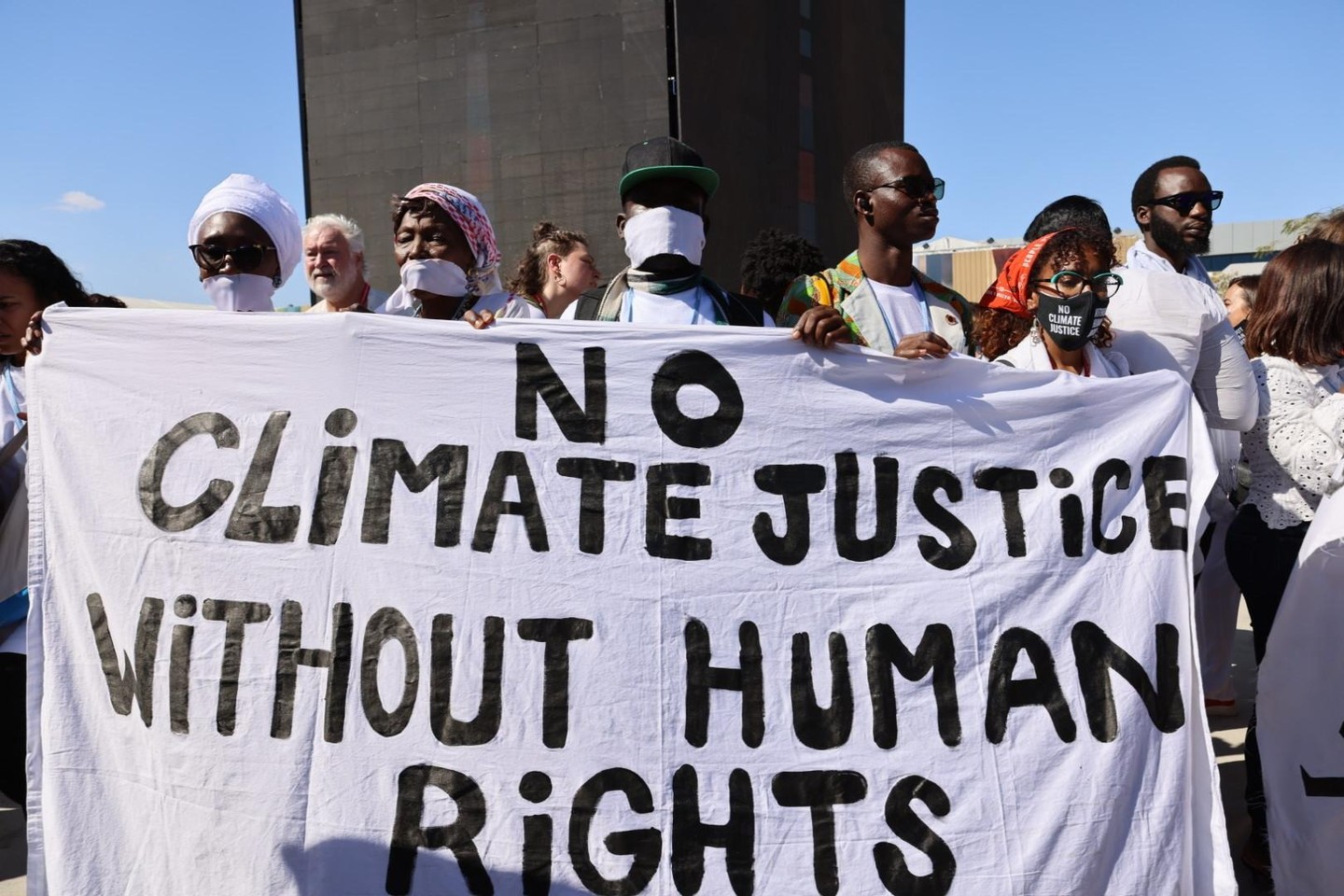
This newsletter is also available in French and Spanish.
COP started with news from scientists that we are close to not being able to stay at 1.5C of heating, and the United Nations Secretary General has warned at the first day of the conference that we have two choices: ‘cooperate or perish’. As we navigate through the many activities and emotions from the summit, we’ve listed some highlights that are crucial, informative and uplifting because they show the power of our fellow activists present at the talks. Without their courageous and restless pressure, the voices of millions of people around the world would risk being ignored.
Tomorrow is “Civil Society Day” at COP27, and we hope that the solidarity with our brothers and sisters who deliver their messages to global leaders at the “People’s Plenary” will keep lighting up our hope and fight for a more equitable future beyond fossil fuels, everywhere!
Why don’t you join our Fossil Free mailing list for all the latest stories on climate organizing from around the world. Stories that matter. Campaigns that inspire. All delivered directly to you every month.
IN CASE YOU MISSED IT
Who pays for the climate crisis?
COP27 started a bit late last Monday, as negotiations over the agenda went far into the night on Sunday. But the result was good news: after 30 years, “Loss and Damage” finally made into the official agenda! This is a term used to refer to the devastating effects that climate change is already having around the world – overwhelmingly impacting vulnerable communities. And it’s a topic that has been permeating discussions for many months already.
A few countries are definitely feeling the pressure to step up and come forward with pledges. The amounts announced so far, though, still sound like drops in the ocean considering how much is needed. Civil society has been keeping pressure up for rich countries to pay they fair share. During the week, many actions touched on this topic and on Friday the conference was flooded by people dressing in blue to call attention over the recent devastating climate impacts.
Hope for Pacific homes
And when the topic is advocating for communities vulnerable to climate impacts and fighting for climate action, our friends in the Pacific are true leaders. In the first week of COP, they officially handed the Kioa Climate Emergency Declaration – which if you recall from the last edition of this newsletter, was created by grassroots communities, civil society and NGO’s in the Pacific to bring a united voice to COP27. The declaration is not just a list of demands, but a testimonial filled with hope to save the many homes directly affected by this crisis.

Also last week, Tuvalu joined Vanuatu and formally called for a Fossil Fuel Non-Proliferation Treaty, committing to to a phase out of coal, oil and gas once and for all. Stand in solidarity with Pacific island nations calling for an end to fossil fuels:
No more money to fossil fuels!
Last Wednesday was “Finance Day” at COP, and our movement didn’t miss the opportunity to point fingers at those who are still pouring money into dirty fossil fuel projects. In an event led by the Japanese bank MUFG, activists from Uganda and Tanzania confronted bank executives about their companies financing the construction of the East African Crude Oil Pipeline. 
Japan, by the way, won the “Fossil of the Day” that day, as the country is the world’s largest public financier for oil, gas, and coal projects – having contributed $10.6 billion USD per year on average between 2019 and 2021. The “prize” is given by Climate Action Network (CAN) every day at COP, to those countries which are doing a particularly bad job.
No climate justice without human rights!
Freedom of speech and of assembly (or the lack of them) have been very present topics during this COP and last Thursday, activists protested in white to demand Heads of State to take a stand against the human rights abuses and ask for the release of prisoners of conscience in Egypt.

#WeAreNotYetDefeated!
Last week ended with a march on Saturday, where more than 2,000 people protested under the slogan “We Are Not Yet Defeated”. It’s traditional for protests to happen in the first weekend of COP. However, this time it happened inside the conference and not in the streets, due to the restrictions by the Egyptian government.
Several groups, activists and organizations came together to say loud and clear that we, the people, are united in our demands: We want more ambition in the climate negotiations, we refuse false solutions and we want rich governments to pay up communities on the frontlines what they’re owed. The march in Egypt was supported by a Global Day of Action, with people coming to the streets in several places around the world — from the United Kingdom, to the Philippines, Denmark, Australia and Fiji!

USE YOUR POWER
For decades, we’ve known that the richest countries generate most of the emissions that are causing the climate crisis. They have contributed the most to climate change, and grew rich by burning fossil fuels. But when it comes to the effects of climate disasters, countries in the Global South are hit hardest.
As the discussions progress this year at the UN Climate Talks, it’s becoming clearer and clearer that rich countries will not step up to their responsibility if we don’t pressure them. They must pull money out of fossil fuels, and use it to fund a just, clean, renewable energy transition everywhere. And they need to do it now!
Sign this petition to demand global leaders to fund the just transition:
SKILL UP YOUR ACTIVISM
Loss and Damage, Frontline Communities, V20 Group… what on Earth do those terms mean?
We know climate activism has its own lingo sometimes, and it may be difficult to keep up with all the jargon — especially during busy moments as the UN Climate Talks. Our team has thoughtfully created a glossary of terms to help us to follow the conversation.

These are just two of them, and you can find more on our social media! Follow 350.org on Instagram, Twitter and Facebook.
Quote of the month
The oil and gas that fossil fuel companies want to develop in Africa will not be for Africans. That oil and gas will be loaded onto ships and get shipped to Europe. The profits from that new fossil fuel development will line the pockets of people who are already rich.
The only way to help lift people out of energy poverty is through distributed renewable energy.
The post COP27 Special Edition appeared first on 350.



0 Commentaires